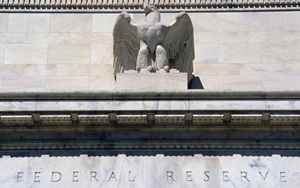(Finance) – Members of the Federal Open Market Committee (FOMC) of the FED agree that high inflation and restrictive labor market conditions justify the start of the reduction of the central bank balance sheet at a forthcoming meeting, with a rate of decrease faster than in the 2017-19 period. In particular, Federal Reserve officials “generally agreed that monthly limits of about $ 60 billion for Treasuries and about $ 35 billion for MBSs would likely be appropriate,” for a total of 95 billion dollars.
This is what emerges from minutes of the FED meeting of 15 and 16 March 2022, when the first rate hike in over three years was approved. The monthly ceilings for budget reduction “could be phased in over a period of three months or slightly longer if market conditions justify it,” it is added. The FOMC is expected to approve the budget cut in its next one meeting from 3 to 4 May. “Participants agreed that substantial progress has been made on the plan and that the Committee is in a good position to begin the process of reducing the size of the budget already after the conclusion of its next meeting in May,” the minutes show.
Another interesting passage from the meeting reports is the one about the rate hike, which ultimately was 25 basis points at last month’s meeting (with a vote of 8-1). “Many participants noted that, with inflation well above the Committee’s target, upside inflation risks and the federal funds rate well below participants’ long-term level estimates, they would have preferred a 50 basis point increase [..] in this meeting “, we read in the minutes.
“Many participants noted that one or more 50 basis point increases in the target range could be appropriate in future meetingsparticularly if inflationary pressures remain high or intensify, “it is emphasized.
Looking to the coming months, the participants in the meeting “saw fit rapidly shift the monetary policy stance towards neutral. They also noted that, depending on economic and financial developments, a move to a stricter political stance might be justified. “Some FOMC members later expressed concern that” high inflation and inflation expectations could take root if the public began to question the Committee’s determination to adjust the policy position appropriately. “
In the minutes no particular details emerge on the effects of the Ukrainian crisis on the economy and monetary policy choices, but it is emphasized that “several participants considered that the upside risk to inflation associated with war appeared more significant than downside risk to growthas inflation was already high, the US had a relatively low level of financial and trade exposure to Russia and the US economy was well positioned to absorb further adverse demand shocks. ”
